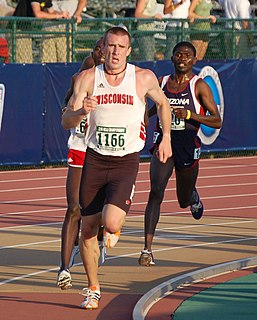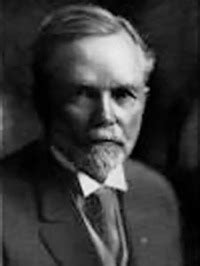A Quote by Alfred Shrubb
The less serious running of any description which an athlete indulges in before eighteen, the better for his future prospects.
Related Quotes
It has been our experience that if a young man decides to go on a mission, he can not only play well when he returns, he will often play better. If an athlete could play well before he went on a mission, he will definitely play well when he returns; and, if an athlete could not play well before his mission, he probably won't play well when he returns. However, his chances of playing well are perhaps better if he goes because he will return with . . . better work habits, and a better knowledge of what it takes to be successful.
At some point, you realize you can't provide a perfectly monolithic description of a foreign culture's future any more than you can provide a monolithic description of your own hometown's future. Your choices about what to emphasize and what to leave out make all the difference, and ultimately, your fingerprints and biases and viewpoints are going to be all over the story.
I have repeatedly stressed that the selfish impulses of man constitute a much less historic danger than his integrative tendencies. To put it in the simplest way: the individual who indulges in an excess of aggressive self-assertiveness incurs the penalties of society-he outlaws himself, he contracts out of the hierarchy. The true believer, on the other hand, becomes more closely knit into it; he enters the womb of his church, or party, or whatever the social holon to which he surrenders his identity.
An age where you feel like you could love anyone, where you put everything on the line for the smallest of things. Eighteen. Adults say that it's an age where we laugh if a leaf tumbles by. But back then, we were more serious than any adult, more intense, and had our strength tested. 1997. That was how our eighteen was beginning.
In this way, his unhappy soul struggled with its anguish. Eighteen hundred years before this unfortunate man, the mysterious Being, in whom all the sanctities and all the sufferings of humanity come together, He too, while the olive trees trembled in the fierce breath of the Infinite, had brushed away the fearful cup that appeared before him, streaming with shadow and running over with darkness, in the star-filled depths. (pg. 236)
I'm pretty fundamental when it comes to running. A basketball player doesn't practice his free throw shooting by doing slam dunks all over the place. He does it by practicing free throws. That's the attitude I take: You don't get better at running by doing everything but running. You get better by running.
These tenses-past, present and future-are not the tenses of time; they are tenses of the mind. That which is no longer before the mind becomes the past. That which is before the mind is the present. And that which is going to be before the mind is the future. Past is that which is no longer before you. Future is that which is not yet before you. And present is that which is before you and is slipping out of your sight. Soon it will be past.
When Arthur Ashe plays tennis, his purpose each day is to play the game in a way he has never played it before. It may be a backhand he uses, one that he may never have used before in that circumstance. His play is a fresh integration of his world at the instant of action. A really great scientist has the whole past at his disposal. At any instant he is rebuilding the world, molecule by molecule, in his subconscious. That is what you want in an athlete or a scientist.

































